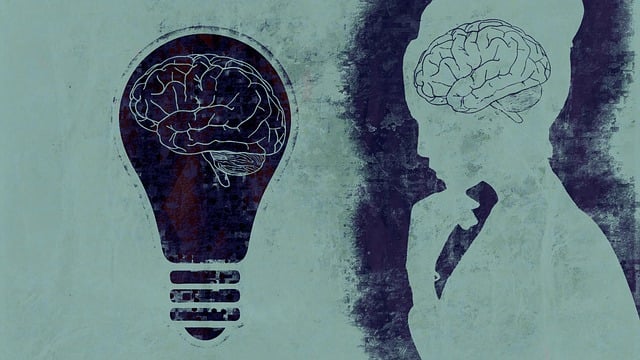Littleton Eating Disorders Therapy prioritizes comprehensive risk assessment in mental health care, addressing challenges like body image triggers and professional burnout. Through tailored treatments, cultural sensitivity, and strategic self-care initiatives, they ensure safe spaces for clients while mitigating risks to therapists' well-being. This proactive approach, exemplified by their expanded services and crisis intervention, enhances treatment outcomes and fosters a holistic recovery environment.
Mental health professionals confront unique challenges, necessitating robust risk assessment practices. This article delves into the crucial role of risk assessment as a cornerstone for safe and effective mental health practice. We explore identifying potential hazards specific to eating disorders therapy, drawing insights from the Littleton Eating Disorders Therapy case study. Furthermore, we present strategies for mitigating risks and ensuring safety in clinical settings. By understanding these aspects, professionals can enhance patient outcomes and foster a secure therapeutic environment.
- Understanding Risk Assessment: A Cornerstone for Mental Health Practice
- Identifying Potential Hazards in Eating Disorders Therapy
- Strategies for Mitigating Risks and Ensuring Safety
- Case Studies: Learning from Littleton Eating Disorders Therapy
Understanding Risk Assessment: A Cornerstone for Mental Health Practice

In the field of mental health care, risk assessment is a cornerstone that guides practitioners in delivering effective and safe therapy. It involves meticulously evaluating various factors that may pose risks to both clients and therapists, ensuring a supportive and healing environment. For specialists like those at Littleton Eating Disorders Therapy, understanding this process is paramount. By assessing risks, professionals can anticipate potential challenges, implement appropriate interventions, and foster resilience among their clients. This proactive approach not only enhances treatment outcomes but also safeguards the well-being of mental health providers, preventing burnout, which is a significant concern in the healthcare industry, especially with the demanding nature of Burnout Prevention Strategies for Healthcare Providers.
Risk assessment plays a pivotal role in guiding therapy sessions, particularly when addressing complex issues such as eating disorders. It allows professionals to tailor their methods, incorporating Stress Reduction Techniques that cater to individual needs. Moreover, regular risk assessments enable therapists to stay updated on clients’ progress and adjust treatments accordingly, ensuring continuity and effectiveness. This comprehensive process is further enhanced by the Mental Wellness Podcast Series Production, which offers additional resources and insights into managing mental health risks in diverse populations.
Identifying Potential Hazards in Eating Disorders Therapy

Identifying potential hazards is a critical step in risk assessment for mental health professionals, especially when specializing in eating disorders therapy. In Littleton Eating Disorders Therapy, various risks and challenges emerge due to the complex nature of these conditions. One significant hazard is the potential for triggering or exacerbating symptoms related to body image distortion and disordered eating behaviors. Therapists must be vigilant in creating a safe and non-judgmental environment while also being mindful of their own emotional responses.
Cultural sensitivity in mental healthcare practice plays a pivotal role in mitigating these risks. By understanding the diverse cultural perspectives on body, food, and mental health, therapists can tailor their approach to address unique challenges faced by clients from different backgrounds. Effective stress management techniques for professionals are also essential, as burnout can negatively impact emotional regulation, potentially leading to decreased clinical effectiveness.
Strategies for Mitigating Risks and Ensuring Safety

Mental health professionals are at a unique risk of experiencing secondary trauma and burnout due to the nature of their work. To mitigate these risks, several strategies can be implemented. Firstly, fostering strong boundaries is essential. This includes setting clear limits with clients, prioritizing self-care, and seeking support from colleagues or supervision services. At Littleton Eating Disorders Therapy, for instance, therapists undergo rigorous training in emotional regulation techniques to manage the emotional demands of their work effectively.
Additionally, building empathy and developing robust coping mechanisms are vital. Effective therapy involves a deep understanding of clients’ experiences and emotions. Through ongoing professional development, including workshops on emotional regulation and empathy-building strategies, therapists can enhance their ability to connect with clients while maintaining their own mental wellness. These programs, such as the Mental Wellness Coaching Programs Development, play a significant role in ensuring professionals remain equipped to handle challenging situations and maintain a healthy work-life balance.
Case Studies: Learning from Littleton Eating Disorders Therapy

The tragedy that unfolded in Littleton, Colorado, where an individual with untreated eating disorders and mental health challenges carried out a devastating attack, serves as a stark reminder of the importance of comprehensive risk assessment for mental health professionals. This event underscores the critical need for robust systems to identify and address potential risks within the therapy setting. By studying such case studies, mental health professionals can gain valuable insights into improving their practices.
The Littleton Eating Disorders Therapy program offers a compelling example of how community outreach and proactive intervention strategies can be implemented effectively. Post-crisis, the program expanded its services, incorporating crisis intervention guidance and depression prevention initiatives. This holistic approach ensures that patients not only receive specialized treatment for eating disorders but also access crucial support during times of heightened risk, fostering a safer environment for recovery.
Mental health professionals must embrace risk assessment as a vital tool to ensure patient safety, particularly in specialized areas like eating disorders therapy. By understanding potential hazards and implementing effective strategies, practitioners can create a secure environment, mirroring the successful approaches seen in case studies like Littleton Eating Disorders Therapy. This proactive approach not only protects patients but also enhances the overall quality of care provided.














